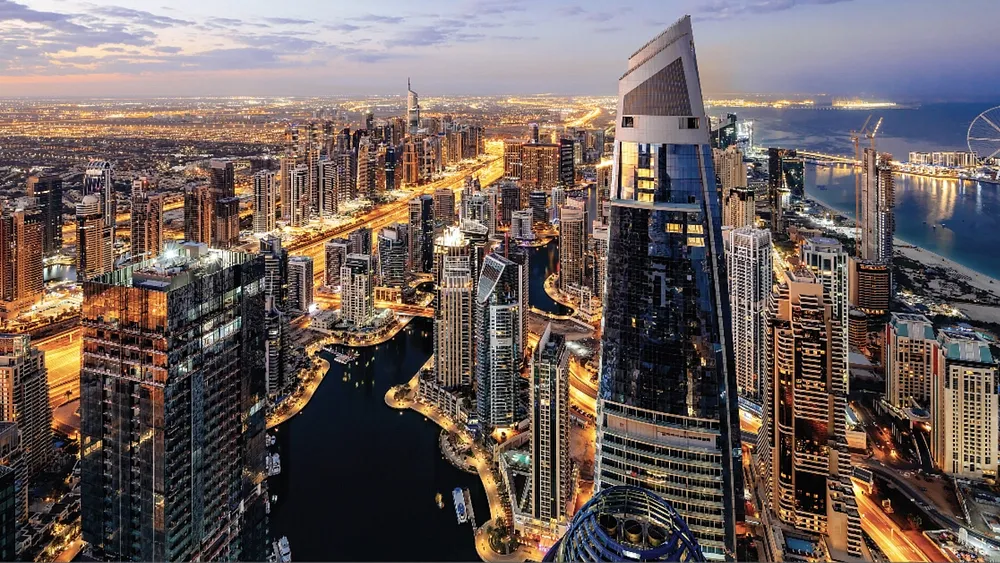Signature Collection
Explore SignatureDubai has once again proven its reputation as a global business hub with the announcement of a transformative Dubai Free Zones Council Resolution. This new directive enables unprecedented flexibility for companies operating within the city’s free zones, empowering them to expand into mainland Dubai without the need to establish new legal entities. As part of the broader D33 Economic Agenda, this move underscores Dubai's commitment to economic diversification and ease of doing business.
New Licensing Models for Market Access
The Dubai Free Zones Council Resolution marks a major policy shift, giving free zone companies the legal backing to enter mainland markets more efficiently. Companies can now choose between a range of licensing models that facilitate access to Dubai's lucrative mainland opportunities. This new resolution aligns with Dubai's goal of doubling its economy by 2033 and making the emirate one of the top three global economic cities.
With this reform, free zone companies onshore Dubai operations can now take place through more streamlined and cost-effective avenues. The new licensing framework allows businesses to retain their headquarters within the free zone while legally operating onshore via designated channels. This opens doors to markets and clients previously out of reach, especially in sectors tied to government contracts or mainland service delivery.
Previously, many businesses faced the challenge of setting up an entirely separate entity to function within mainland Dubai. Now, free zone companies' onshore Dubai presence can be achieved through the introduction of a branch license or by obtaining a temporary activity permit. This shift not only reduces administrative overheads but also enhances scalability and market agility.
One of the key offerings under the new regulation is the free zone expansion mainland license, which allows companies to extend their operations to the mainland without relocating their base of operations. This type of licence fosters a dual-presence structure that balances regional compliance with strategic market reach.
Flexible Structures to Suit Diverse Needs
Another significant licensing option is the hybrid branch headquarters free zone model. This allows a free zone company to establish a branch in mainland Dubai while continuing to maintain its principal operations in a free zone. It creates a seamless legal link between the two operational zones, optimizing both tax efficiencies and market access.
The hybrid branch headquarters free zone arrangement also enables businesses to retain the tax advantages and regulatory frameworks of the free zone while still serving clients and projects based in mainland Dubai. This model is expected to appeal particularly to tech firms, consultancies, and professional service providers who require flexibility in serving a broader client base.
Companies not ready to fully commit to a branch can take advantage of the temporary activity permit Dubai free zone option. This permit allows for specific, short-term operations within mainland Dubai without the need for a permanent onshore presence. It's an ideal choice for companies testing the waters or engaging in seasonal or project-based work.
The initiative has a robust compliance structure. Companies must maintain separate accounting records for their free zone and mainland operations. They are also subject to inspections and must comply with all applicable federal and local laws, including labor, environmental, and anti-money laundering regulations. The Dubai Department of Economy & Tourism (DET) will issue and oversee the various licenses and permits.
FAQs
It is a new regulation allowing free zone companies to operate in mainland Dubai without establishing new legal entities.
The Dubai Department of Economy & Tourism (DET) is responsible for issuing licenses and permits.
Yes, through the hybrid branch headquarters free zone model.
Most are, except for certain regulated financial institutions like those licensed by DIFC.
Separate financial records and adherence to federal and local laws are mandatory.
The DET will issue a list of permitted activities within six months, and existing companies must comply within one year.
For more information, get in touch with us at Provident
 Apartments
Apartments Villas
Villas Townhouses
Townhouses Penthouses
Penthouses Commercial
Commercial See All Properties
See All Properties Commercial
Commercial Property Management
Property Management List Your Property
List Your Property Mortgages
Mortgages Conveyancing
Conveyancing Short Term Rentals
Short Term Rentals Property Snagging
Property Snagging Partner Program
Partner Program Currency Exchange
Currency Exchange PRYPCO
PRYPCO Ethnovate
Ethnovate Plots
Plots
